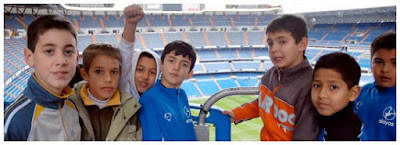302. Updating models [Teacher's learning]

One day teacher A said to teacher B, "The teacher of English herself should read novels in English, I'd say. I'm referring to non-native teachers. That person learns words, expressions, idioms, particular English expressions (diverse from the ones of her native language); she thinks in English during the reading; can do mental or written exercising with those words, by thinking in English. Unconsciously she puts in and takes in expressions that will be naturally used on later occasions. Besides, that person can take risks at using expressions, moderate risks, backed up by her massive and intensive reading. One example of learning and using expressions: phrasal verbs. Up, off, out, in, away, into, down, with, on, are preps and adverbs that can be attached to some verbs and you could maybe achieve to emphasize the meaning of one verb. However, that person should study phrasal verbs, and, as much as possible, check out whether those phrasal verbs she makes up really mean...






















